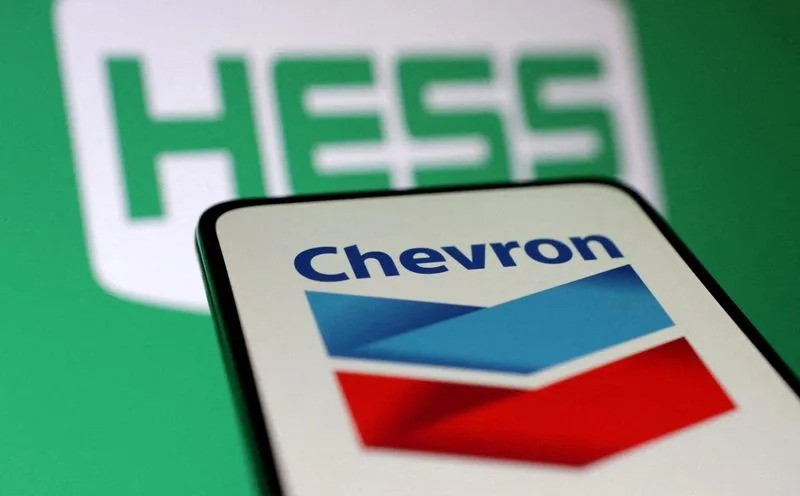HOUSTON (Reuters) -Hess shareholders today approved the proposed US$53 billion merger with Chevron that paves the way for the No. 2 U.S. oil company to gain a prize asset and a foothold in rival Exxon Mobil’s massive Guyana discoveries.
The approval clears one hurdle, but the deal still requires regulatory approval and must face a lengthy arbitration battle with Exxon and CNOOC, Hess’ partners in Guyana.
Majority of Hess’ 308 million shares outstanding voting in favour of the deal was required for approval. Results were preliminary and Hess did not immediately provide the vote tally.
The vote is a win for CEO John Hess, who put his reputation and the future of a company founded by his father on the line.
The result puts to rest claims by some shareholders who wanted additional compensation for the delay in closing the sale. Exxon’s arbitration could push the deal’s closing into 2025.
“We are very pleased that the majority of our stockholders recognize the compelling value of this strategic transaction and look forward to the successful completion of our merger with Chevron,” CEO Hess said.
Hess and Chevron shares gained on the results. Hess was up a fraction at US$151.25 and Chevron rose US$1.13 to US$158.55, both in afternoon New York trading.
“Assuming Chevron wins the arbitration from Exxon or finds a settlement, the transaction is now going to happen,” said Mark Kelly, an analyst with financial firm MKP Advisors.
The yes vote has huge implications for both companies. Acquiring the profitable oilfields in Guyana from Hess would provide Chevron with a means to mitigate the geopolitical risks tied to the TengizChevroil project in Kazakhstan, which mainly transports its oil through Russia to a port on the Black Sea.
In addition, this acquisition could counterbalance the cost overruns experienced at Chevron’s Australian liquefied natural gas (LNG) projects, which have been affected by labor and operational issues.
Hess shareholders will own nearly 15% of the much larger Chevron and get access to its dividend, which is four times greater than Hess’.
The shareholder sign-off also strengthens the companies’ hand in any negotiations with Exxon. While Exxon has expressed no interest in bidding for Hess as a whole, it has not ruled out a potential bid for Hess’ assets in Guyana.
“We anticipate moving the FTC (Federal Trade Commission) regulatory process towards its conclusion in the coming weeks,” said a Chevron spokesperson. “We are confident our position on the preemption right will be affirmed in arbitration.”
Exxon operates all production in Guyana with a 45% stake in the giant Stabroek Block. CNOOC owns another 25% of the joint-venture. Both claim a right of first refusal on any Hess sale of its 30% stake.
Proxy firm Institutional Shareholder Services had recommended shareholders vote to abstain and urged Hess to offer an incentive to shareholders because of the deal delay.
John Hess spent the last month lobbying large shareholders to win support for the merger. He had personally visited or called more than 30 firms, according to people familiar with the matter.








